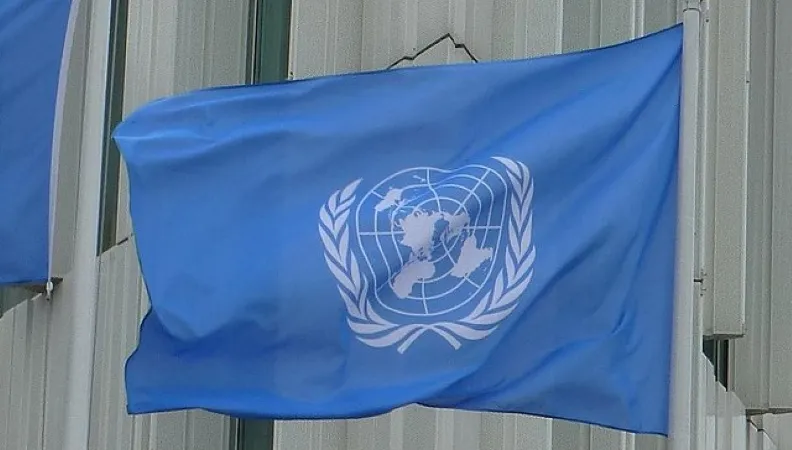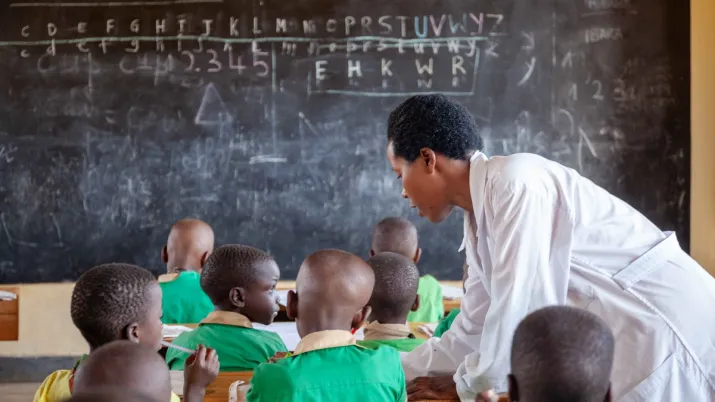Share the page
80 years of the UN: AFD and the 'discreet certainty' of our partnership
Published on

Founded in 1945, four years after Agence Française de Développement (AFD), then known as the "Caisse Centrale de la France Libre", the United Nations shares with AFD a rich history in support of sustainable development. To mark the UN’s 80th anniversary, François Pacquement, History and Strategic Thinking Officer at AFD, and Elsa Duret, International Partnerships and Mobilization Advisor, reflect on this unique relationship.
Their missions converge around the same goals. So much so that AFD Group has committed to aligning 100% of its operations with the Sustainable Development Goals promoted by the United Nations since 2015. "The international agreements forged under the UN’s leadership serve both as a compass and a driving force for sustainable development and the fight against climate change. They shape AFD Group’s objectives and investments. The relationship goes both ways, as AFD (within the Team France framework) also contributes to the multilateral system embodied by the UN," explains Elsa Duret.
To better understand the ties between the two institutions, it is worth going back to 1919. That year saw the creation of the League of Nations, the international organization established to preserve peace in Europe after the First World War. It was later succeeded at the global level by the United Nations in 1945.
Among the early officials of the League of Nations was the French economist Pierre Denis. While in exile in London, he created the Caisse Centrale de la France Libre in 1941. It was the world’s first development agency and would later become AFD. He went on to join the United Nations. "It was thanks to the relationships he built within the League of Nations that Pierre Denis was able to create what would become AFD. He was its first director general," explains François Pacquement. "He later became involved very early on in the UN system, notably alongside Pierre Mendès France and Philippe de Seynes."
Philippe de Seynes, still relatively unknown, was the figure who shaped the UN development system over two decades, from 1955 to 1975. This multilateral framework went on to guide the work of many development banks, including AFD, which was already channeling French development financing in line with UN priorities at the time.
“For developing countries to fully participate in the UN, and for the UN to function effectively, it deployed technical assistance programs,” recounts François Pacquement. “Coordinated by the United Nations Development Programme (UNDP), these programs had a significant impact on the effectiveness of our operations.”
On the road to the Sustainable Development Goals
The 1990s saw the emergence of two themes that would become central: human development and sustainable development. In 1992, at the Rio Earth Summit, the United Nations made sustainable development a shared goal for all countries, both industrialized and developing. From that point on, it also became a priority for AFD. According to François Pacquement "The relationship between the UN and AFD shifted from one of operational proximity, reflected in the ties between local agency directors and UNDP representatives, to that of strategic convergence."
The various conferences organized by the United Nations throughout that decade led to the adoption of the Millennium Development Goals in 2000. Around that time, a new concept emerged: global public goods. It was soon integrated into AFD’s approach as well.
In September 2015, following the Addis Ababa conference on financing for development, the United Nations General Assembly adopted 17 Sustainable Development Goals (SDGs). Member states committed to achieving specific targets to end poverty, protect the environment and climate, and promote good governance and prosperity by 2030. In December of the same year, the Paris Agreement on climate was signed. From that point on, development and climate became inseparable.
“That year, the United Nations enabled member states to renew a shared strategic framework for development, and France played an important role in that process,” notes François Pacquement. The goals adopted in 2015 immediately became a key reference for AFD, as they did for all development actors.
In 2020, a first summit brought together public development banks from around the world around shared objectives: Finance in Common (FiCS). This network, hosted by AFD Group, now brings together more than 530 financial institutions and has been recognized by the United Nations as a major actor in public development finance.
“Our role is to ensure that France’s major commitments to the Sustainable Development Goals and the fight against climate change are translated into financing and measurable impact,” says Elsa Duret.
AFD at the 2025 United Nations General Assembly
Speaking at the UN General Assembly in September 2025, AFD Chief Executive Officer Rémy Rioux emphasized the key role of FiCS in financing the SDGs and climate action. He welcomed the recognition of financial institutions in the final document of the Fourth International Conference on Financing for Sustainable Development (FfD4). "In the midst of the deep crisis facing international cooperation, we remain convinced that national development banks (NDBs), together with their international partners, are particularly well positioned to reconcile solidarity and sovereignty in a new and necessary way. FiCS is an open and practical laboratory for reinventing the framework of international cooperation," said Rémy Rioux, as he presented a roadmap for building an inclusive financial architecture.
AFD’s direct collaborations with UN development agencies, funds and programs (including UNICEF, UNESCO, UN Women, UNDP, the International Fund for Agricultural Development (IFAD), UN-Habitat and the World Health Organization) take many forms. “Joint advocacy in international and regional forums and policy dialogues, exchanges of expertise and experience within communities of practice, collective action through thematic coalitions, and co-financing of projects at the request of partner countries,” explains Elsa Duret.
These co-financed projects represent only a small share of AFD Group’s activity. What matters most is the shared sense of mission and close collaboration in the field. “Our relationship with the United Nations is a discreet certainty,” says François Pacquement. “It is a certainty because we cannot do without them, and discreet because it works through mechanisms that are often invisible but essential to how responsibilities are shared across the development community. Together with the UN, we contribute to converging missions that are essential for implementing global public policies. In today’s world, cooperation is more necessary than ever.”



